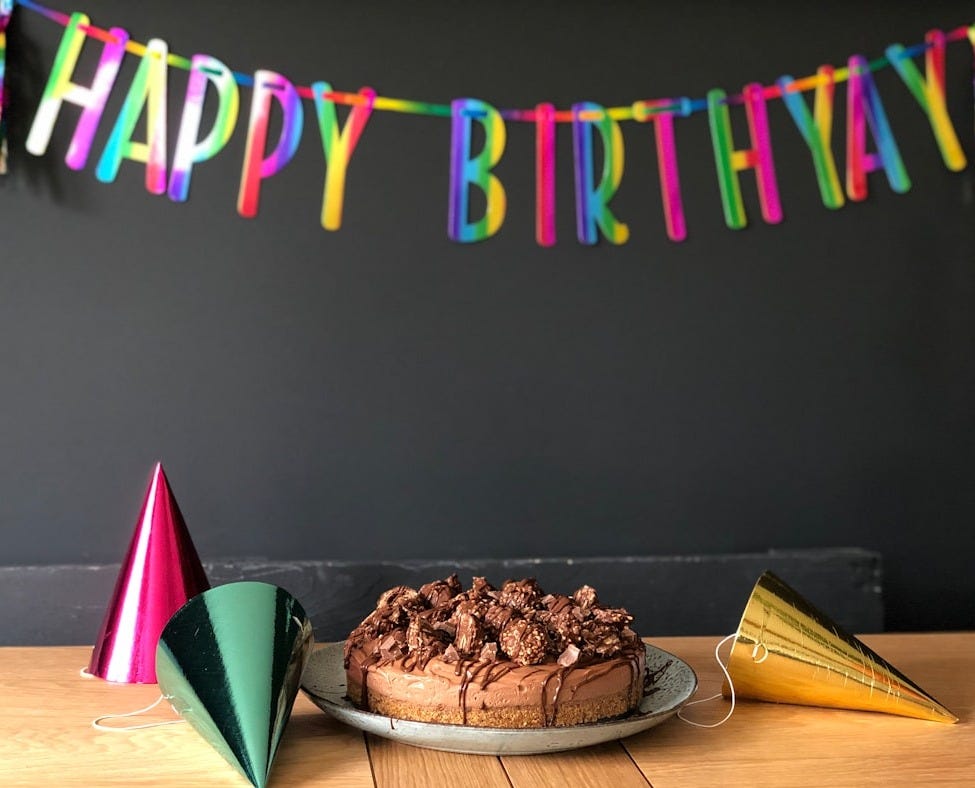Aging Well Is Harder Than It Sounds
How to Make It Easier -Maybe

Do you greet your birthday with ambivalence or anticipation?
When I started the newsletter, one of my goals was to age well and share what I learned with others — that’s still true. However, now that I’m four years older — and wiser, I know it’s more of a challenge and requires more effort than planned.
Issues keep popping up that I didn’t consider. Let me explain.
I can’t be as independent as I want, and don’t have the same control over my life. After having eye surgery six years ago, I no longer felt safe driving, so didn’t renew my license and had to find other resources. I was never good at figuring out computer problems, fixing broken household items, or doing taxes, so I have to ask for help. Family members are willing, but I dislike bothering them, and my pride wants me to figure it all out.
Physical changes keep cropping up. Even though I do my best to stay active, exercise, and stay engaged, new aches and limitations sneak in. My fingers are less nimble, my knees complain about climbing the stairs, and I need to take more breaks.
The world and technology are changing rapidly. Staying informed and distinguishing the truth from fake news is challenging.
All the recent life changes have taken an enormous emotional toll. Dreams can’t come true, some are lost forever, and adjustments must be accepted. These realities cause a wealth of feelings ranging from sadness to anger and everything in between.
Perhaps, though, there’s a better way.
The Journal of Gerontology reported that negative attitudes toward aging cause people to react more negatively toward daily stressors. Conversely, positive views toward aging are associated with "higher levels of life satisfaction, better self-rated health, improved social networks, and better well-being.
Another study published in the Journal of Personality and Social Psychology found that people with more positive self-perceptions about aging lived an average of 7.5 years longer than those with negative beliefs.
Dick Hartman, a motivational speaker and author lives by the adage, “If it is to be, it's up to me. So when something happens, he chooses his response and how he deals with it mentally and emotionally.
Could it be as simple as that? I’m willing to consider the possibility.
The article "How to Age Gracefully by Changing Your Mindset" offers ideas for doing just that. I’ve begun experimenting with these four.
Control What We Can
We can shift our thinking to acknowledge that while some things are out of our control, others are. We can focus on them and take time for enjoyable self-care activities.
Stay Inspired
Along with having a purpose, staying inspired is key. Hartman says reading something uplifting for 10 minutes daily can change our outlook. Incorporating inspirational reading or listening into our daily practice might be beneficial.
I love his “10 Things I Do Every Day” list. It’s a hand-picked selection of non-negotiables that help him be his mental and physical best. He aims to accomplish all of them before going to sleep each night. I’ve made mine.
Live in the Now
Research shows that mindfulness, or staying in the present moment, can reduce depression and enhance relationships.
Living in the past can be dangerous and hold us back. We must not ignore or deny it, but find ways to move forward. While it may not be possible to erase the memory of past hardships or painful experiences, mindfulness can help us detach.
Practice Gratitude
Research connecting gratitude with health benefits continues to grow, making it clear that gratitude at any age enhances our quality of life. Experts suggest that we find a silver lining as often as possible and believe that things happen for a reason, even if it's something as simple as misplacing our eyeglasses.
Do I greet my birthday with ambivalence or anticipation? I’m probably ambivalent; that special person is no longer here to share it with me. Yet, I recognize the day, am thankful I’ve made it this far, and look forward to doing what I can with the time left.
How about you?
I would love it if you could share the Aging Well newsletter with others. I want to share the lessons I learned through the years of life and caregiving with as many people as possible, and more than anything, I want to continue expanding our community of readers.
So, please forward this email to a friend and invite them to join us. They can subscribe here:
Thank you for being part of the Aging Well community.
If you want to support my work, consider donating to the Alzheimer's Association. This link takes you to their website. The choice is yours.
Janice Walton is a psychologist, a widow, a mother, a grandmother, a great-grandmother, and a writer. Her book Aging Well: 30 Lessons for Making the Most of Your Later Years is available on Amazon, and she has written articles for Substack for four years.


When I started the newsletter, one of my goals was to age well and share what I learned with others — that’s still true. However, now that I’m four years older — and wiser, I know it’s more of a challenge and requires more effort than planned.
Thank you for this, Janice, and thanks to all your commenters as well. I agree 1000% with everything that’s being said here.
Mindset is key!! In my book, The New Old, I reference that same study that showed a positive mindset about aging increased longevity by 7.6 years (it’s from the Yale School of Public Health). So powerful!! One of the three principles in my book is Master Your Mindset. 😊